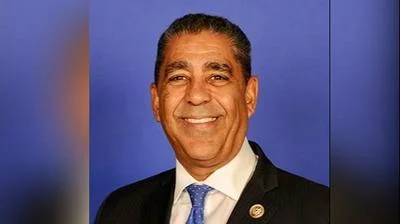Rabbi Dr. Ari Berman, President and Rosh Yeshiva | Yeshiva University
Rabbi Dr. Ari Berman, President and Rosh Yeshiva | Yeshiva University
On September 10, 2024, over 100 attendees gathered in Stern College’s Koch Auditorium for a public conversation between the Wall Street Journal’s Features Editor Adam Kirsch and Rabbi Dr. Stu Halpern, Senior Advisor to the Provost of Yeshiva University and Deputy Director of the Straus Center for Torah and Western Thought. The event centered on Kirsch’s newly released book, "On Settler Colonialism: Ideology, Violence, and Justice" (W.W. Norton and Co., 2024), which examines the use of the settler colonialism framework against the United States and Israel.
Kirsch and Halpern discussed the evolving discourse around settler colonialism and its implications, particularly concerning Israel. This topic is pertinent to Yeshiva University students who seek to understand Israel's current challenges in global public relations.
Historically, settler colonialism referred to Europeans settling in African or Asian lands post-European empires' disintegration. These settlers were a minority expropriating land from native populations, leading to prolonged conflicts. However, Australian sociologist Patrick Wolfe redefined settler colonialism in the 1990s as a "structure" that continues to influence societies like the U.S., Canada, and Australia.
“All of these societies... are not just guilty of things that happened in the past but tainted by settler-colonialism,” Kirsch explained. He noted that this theory has gained traction across various academic fields over recent decades.
Kirsch highlighted how this framework has increasingly been applied to discussions about Israel following Hamas's attack on October 7, 2023. “Most of the time when people hear about academic theories they seem very far out and esoteric,” Kirsch commented. He observed that many progressive organizations have justified Hamas's actions by framing them as resistance against a "settler-colonial state."
Kirsch emphasized a critical distinction between historical settler colonialism and Israel's situation. Unlike classic settler colonialism involving land theft by minorities, Jewish settlers legally purchased land in Israel but faced attacks from local Arab populations. Despite this difference, he argued that settler colonial theory oversimplifies Israel's complex geopolitical history into a narrative of European oppression.
The speakers also explored potential consequences if such rhetoric becomes mainstream post-October 7th attacks. Simplifying conflicts into narratives of oppression could lead academics and activists to sympathize with groups like Hamas while distorting public discourse on Israel.
Rabbi Dr. Halpern introduced a perspective on repentance during Elul before Jewish High Holidays. He questioned whether societies deemed tainted by colonial origins can ever achieve redemption—a notion contrary to Jewish teachings on forgiveness.
Kirsch connected this debate with critical race theory discussions regarding slavery's legacy in American society. Both frameworks present moral dilemmas about addressing historical wrongs today without clear paths for societal redemption.
In conclusion, Kirsch noted that while decolonization seems improbable for countries like the U.S., ongoing violence characterizes what some see as an active struggle against Israeli "settler-colonial" presence—an idea used to justify violent acts like those on October 7th.
During Q&A sessions reflecting Yeshiva University's commitment to intellectual discourse—students engaged with Kirsch directly—Straus Scholars Tamara Yeshurun & Tziporah Pinczower found it enlightening; Ateret Tollinsky appreciated his clarity on ideological terminologies related specifically towards understanding pressing issues surrounding modern-day interpretations around ‘settlers.’
This event underscored thoughtful discussions' necessity amid increasing distortion within intellectual landscapes globally affecting both Israelis broadly internationally alike.
One can read Rabbi Dr. Stu Halpern’s review of Kirsch’s book here at The Jewish Journal.
This event was hosted by Straus Center’s Impact Office alongside co-sponsors including S.Daniel Abraham Honors Program & Shevet Glaubach Center aiming furthering alumni/students’ impact involved politics/policy/journalism across both undergraduate campuses within Yeshiva University itself
———






 Alerts Sign-up
Alerts Sign-up